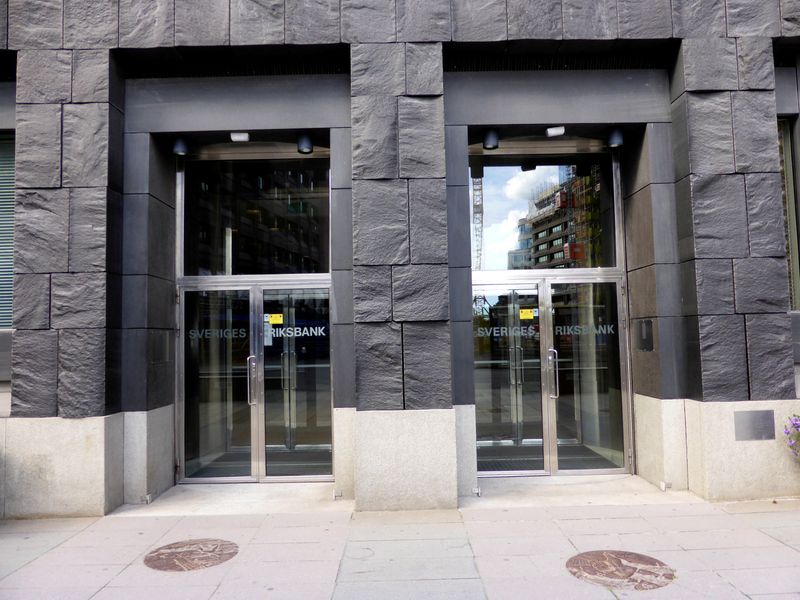By Simon Johnson
STOCKHOLM (Reuters) -Sweden's central bank raised its key interest rate by three-quarters of a percentage point on Thursday to 2.5% and signalled further hikes next year to fight surging inflation.
The Riksbank, which as late as February expected rates to remain at zero for the coming years, has been surprised by the pace of price rises this year, sparked by the lingering effects of the pandemic and the war in Ukraine.
It got another unpleasant shock from October's figures which showed core inflation jumped by 7.9%, forcing a more hawkish shift in policy at what was long-serving Riksbank Governor Stefan Ingves' last scheduled rate-setting meeting.
"It's our judgement now that there are one or more rate hikes still in the pipeline," Ingves told reporters.
Ingves, in his 100th rate decision, said by not reacting now there was a risk the Riksbank would have to do even more later.
"We know it's going to hurt, but it's the best thing we can do today to get the Swedish economy back to an inflation pace of 2%," he said.
At its previous meeting in September, the Riksbank forecast interest rates would peak around 2.5% next year.
Markets, however, still think the central bank is behind the curve, seeing rates peaking around 3.25% in autumn next year.
"We still think that the Riksbank will hike by another 50 bp also in February," Swedbank said in a note.
There is little the Riksbank can do about current inflation, but it wants to prevent surging prices spilling over into higher wages in a self-reinforcing spiral.
At the same time, the economy is expected to contract next year. Mortgage costs have risen, house prices are sliding and many households are already struggling with a cost-of-living crisis.
Just how high rates will have to go, however, remains uncertain.
In the United States, the Federal Reserve may soon scale back the pace of its interest rate rises. In Europe, some rate-setters at the European Central Bank are worried aggressive hikes will only serve to worsen the downturn that all expect.
Banking group Nordea said it expected the Riksbank to hike to 2.75% in February but go no higher.
"The economy will simply be too weak," Nordea economist Torbjorn Isaksson said in a note, adding rate cuts would start in 2024.
Analysts in a Reuters poll had forecast a 75 basis point hike and that the central bank would raise its rate-path forecast. The Swedish crown weakened slightly after the policy decision.
Ingves, who will be replaced by current FSA chief Erik Thedeen at the start of next year, has steered Sweden's monetary policy through turbulent times.
During his tenure since 2006, the Riksbank has been accused of being too quick to hike in the early years and then too slow to abandon negative rates, stoking surging house prices.
"There's always someone who thinks they know better than you," Ingves said.
